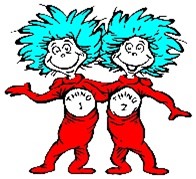After Jesus rose from the dead, he appeared to the disciples. And when I say “appeared,” I mean exactly that. “. . . the doors being locked where the disciples were for fear of the Jews, Jesus came and stood among them and said to them, ‘Peace be with you.’” (1) So he just “appeared.” Voilá! 😮 And they were in shock. They gasped. They jumped back. They grabbed a brother by the arm. Then, “when he had said this, he showed them his hands and his side. Then the disciples were glad when they saw the Lord.” (2)
At first they were scared, in shock. But after a moment “the disciples were glad.” Glad seems a bit understated, don’t you think? I’d like to picture them hugging one another, crying tears of joy, staring at his scars, speechless at his presence, asking a hundred questions – all while Jesus was laughing and trying to calm them down. I really like that Jesus addresses their initial problem: they were locked in the room “for fear of the Jews.” That’s why Jesus’ first words to them are “Peace be with you.” Translated: “Hey guys! Don’t be afraid. It’s just me!” Yes, they were definitely glad. But they were also relieved. They breathed a deep sigh. They secretly thought, “I knew he would come back!” But they weren’t quite sure. Until he did. 😏
And as they breathed a sigh of relief, Jesus “breathed on them and said to them, ‘Receive the Holy Spirit.’” (3) These guys were the first to receive the Spirit of God in their hearts. I’d like to think that John leaned over to Peter and said, “Man, I wish Thomas were here!” Yeah, that’s right. Thomas was absent. He missed the whole thing! 😧
Where was he? We don’t know. But shortly thereafter the disciples found him and said, “We have seen the Lord!” But [Thomas] said to them, ‘Unless I see in his hands the mark of the nails, and place my hand into his side, I will never believe.’” (4)
Unfortunately, he was dubbed right then and there “Doubting Thomas.” But I don’t think that’s really fair. I like Thomas for this. He needed to see this for himself. All of us should respond the same way; that is, listen to the testimony of others who know Jesus and then find out about him for ourselves and make our own decision.
So that’s what Thomas did. “Eight days later, his disciples were inside again, and Thomas was with them. Although the doors were locked, Jesus came and stood among them and said, ‘Peace be with you.’” (5)
Hmm. 🤨 That sounds really familiar. Because it is. This is the same exact scene as the one previously described: doors locked – again. Jesus “appearing” – again. Jesus saying, “Peace be with you,” – again. The very same scene. Why? I think he did it for Thomas. He recreated the scene just for Thomas. So he wouldn’t feel left out! He even told Thomas, “Put your finger here, and see my hands; and put out your hand, and place it in my side. Do not disbelieve, but believe.” (6) He knew exactly what Thomas needed to believe. This is Jesus taking care of Thomas. How personal is that? 🙂 What is Thomas’ reaction? “My Lord and my God!” (7) He was glad. 😀
We serve a loving God who knows our needs and who loves to make us glad. I can’t really recall how I felt that first moment when Christ came into my heart. It was so long ago. But I can tell you that his peace still quiets my fearful soul. His presence still makes me glad. 😁
(1) John 20:19 (2) John 20:20 (3) John 20:23 (4) John 20:25 (5) John 20:26 (6) John 20:27 (7) John 20:28






